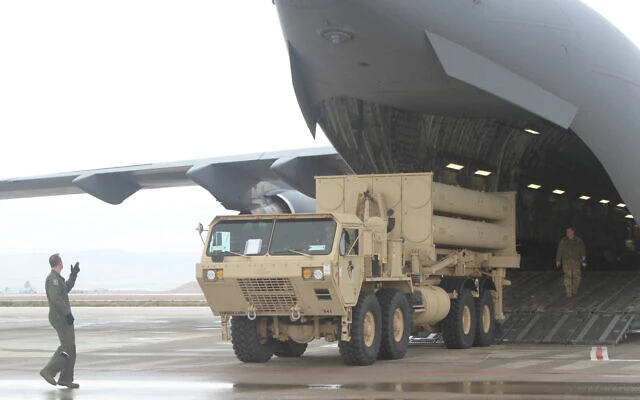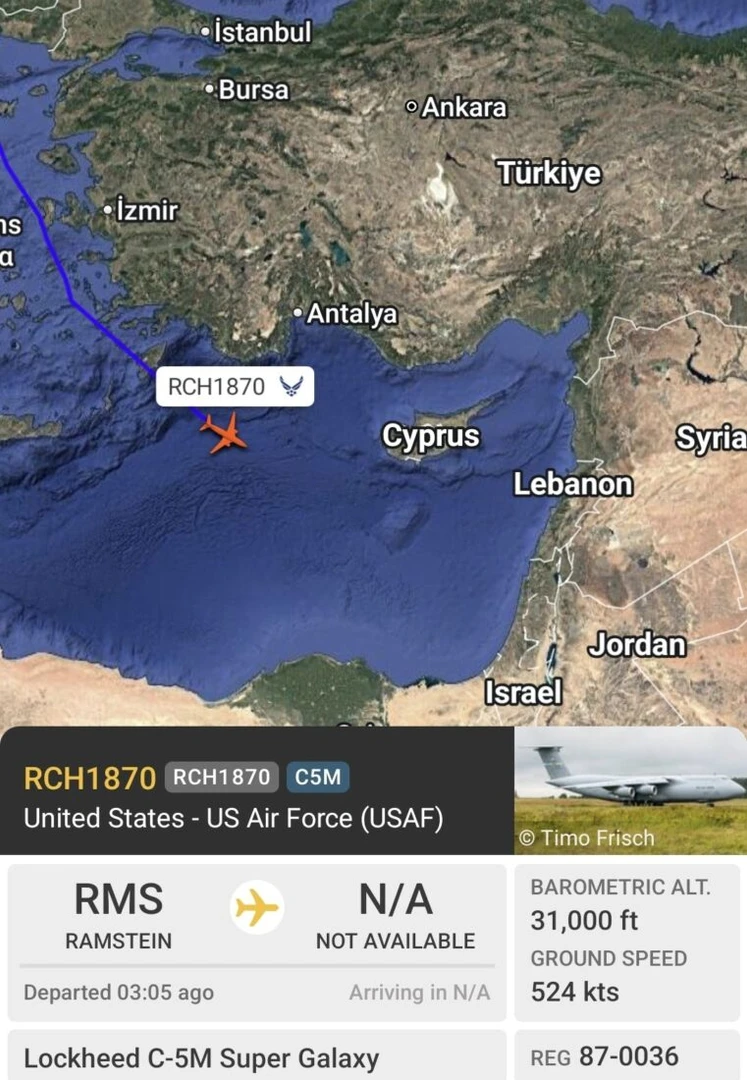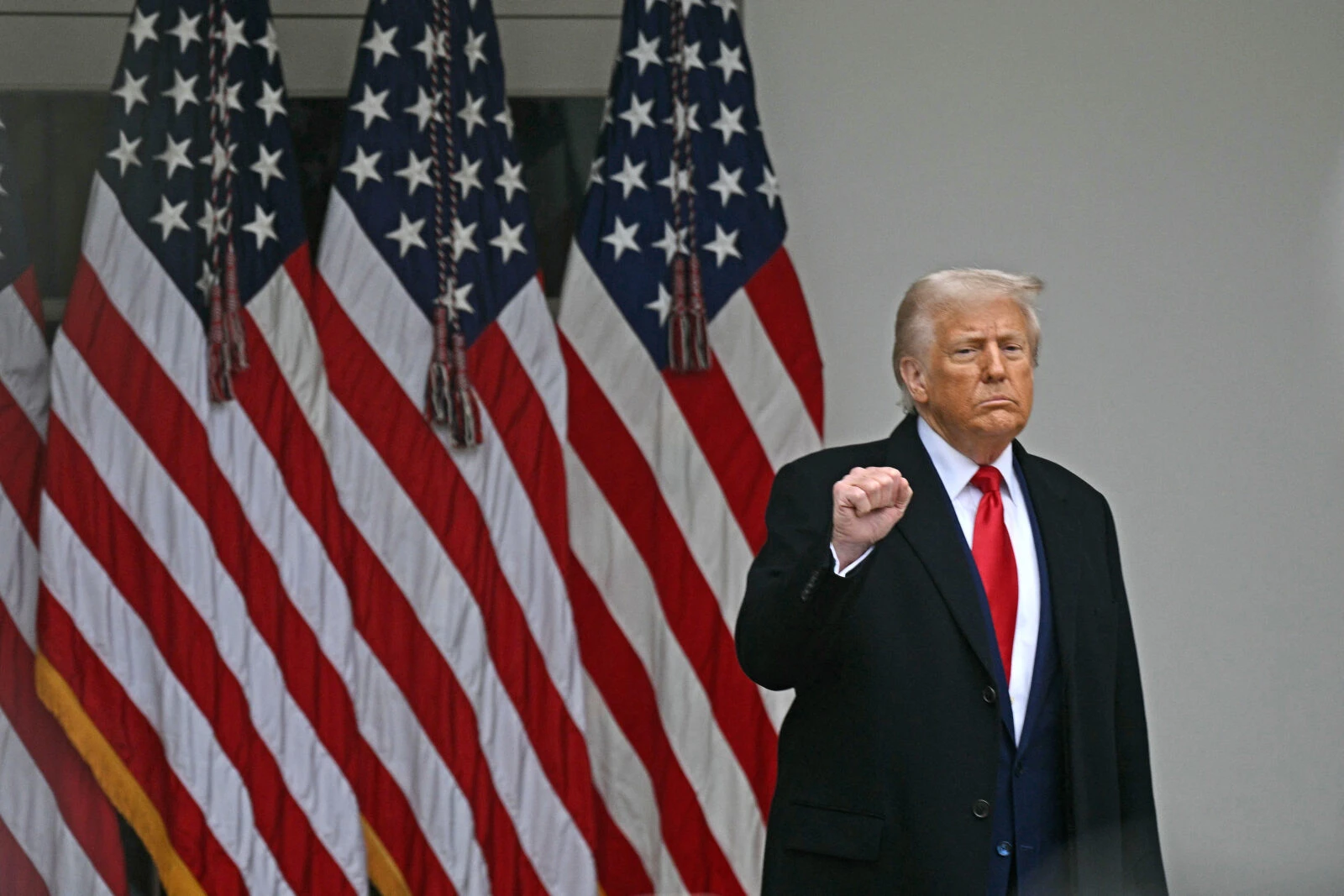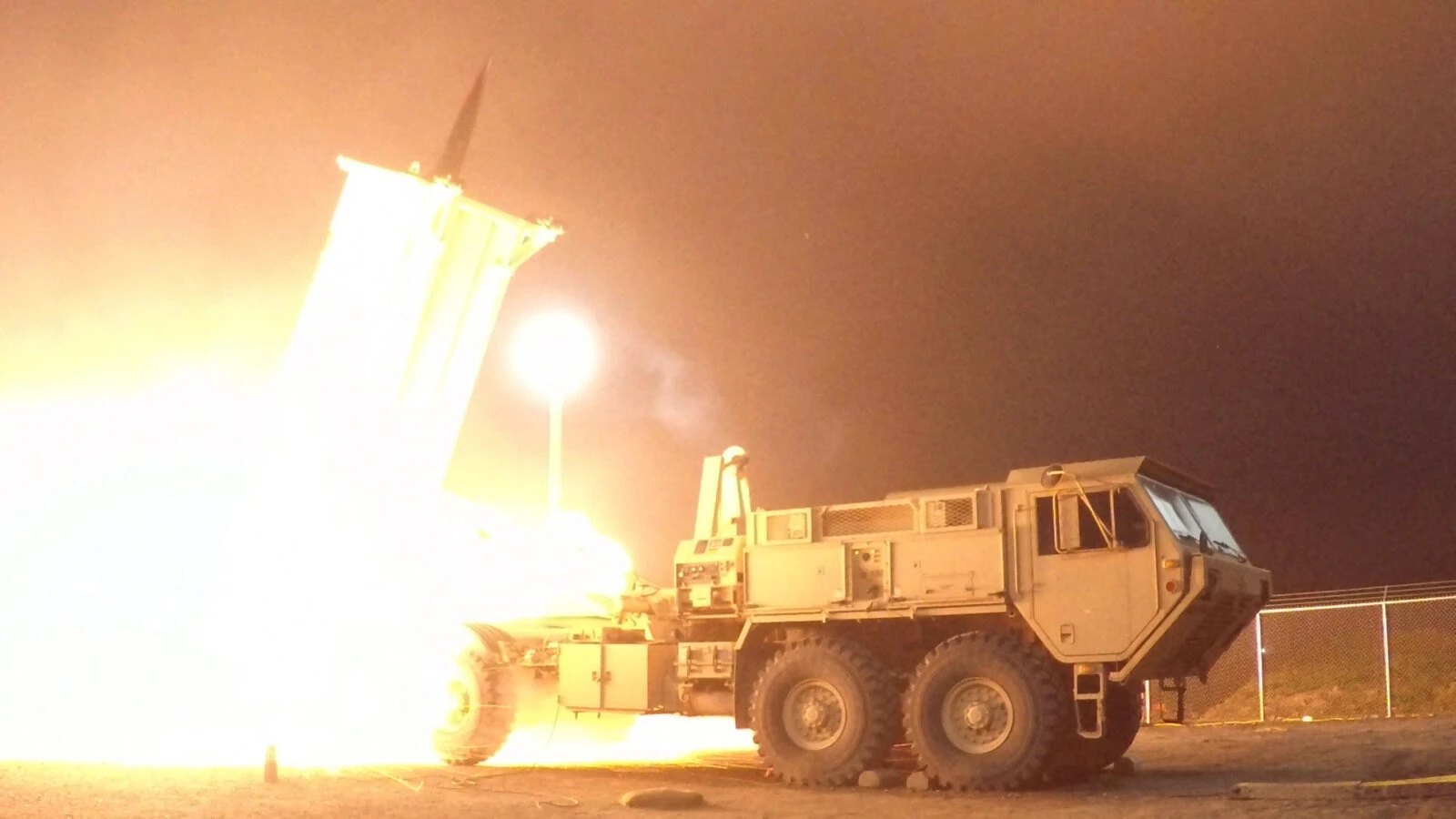US transfers additional THAAD, Patriot air defense systems to Israel
 US Air Force Airmen offloads a THAAD launcher from a C-17 GlobeMaster III at Nevatim Air Base, Israel for an exercise, March 1, 2019. (AFP Photo)
US Air Force Airmen offloads a THAAD launcher from a C-17 GlobeMaster III at Nevatim Air Base, Israel for an exercise, March 1, 2019. (AFP Photo)
The United States has transferred an additional THAAD air defense battery and two Patriot batteries to Israel, according to a report by the Saudi news outlet Al Hadath on Saturday night.
The move comes amid growing tensions over Iran’s nuclear program and U.S. military operations targeting Houthis in Yemen.
The second THAAD (Terminal High Altitude Area Defense) system was reportedly delivered on Friday. Tracking data showed that a U.S. Air Force C-5M Super Galaxy cargo plane that landed at Nevatim Airbase in southern Israel, remained on the ground for approximately eight hours, and then departed.

US moves in response to regional missile threats
The THAAD system is a high-altitude, mobile air defense platform capable of intercepting ballistic missiles at ranges of 150–200 kilometers (93–124 miles), including threats outside the atmosphere.
According to reports, the recently deployed system has already been used to intercept multiple missiles launched toward Israel by Iran-backed Houthi forces in Yemen in recent weeks.
Trump pressures Iran on nuclear talks
The deployment follows recent comments by U.S. President Donald Trump, who warned Tehran of potential U.S. military strikes and new economic sanctions if it does not return to nuclear negotiations.
Last week, U.S. President Donald Trump warned that Iran could face bombing and economic penalties if it fails to reach a nuclear agreement with Washington.
In a telephone interview with NBC News, Trump said American and Iranian officials are “talking,” though he did not offer specifics.
“If they don’t make a deal,” Trump said, “there will be bombing. It will be a bombing the likes of which they have never seen before.”

American forces operate the defense systems
The first THAAD system was deployed to Israel last year at Israel’s request and is operated by approximately 100 U.S. troops. The system complements Israel’s own Arrow missile defense network but is not designed to replace it.
In October, the system had already intercepted several missiles from Yemen.
Former Israeli Air Defense Commander Brig. Gen. Tzvika Haimovich had previously explained, “The system is equivalent to Israel’s Arrow; it does not add another layer of defense or replace existing systems. It’s meant to add more firepower, and every battery comes with dozens of missiles, significantly enhancing firepower.”
“We saw about 200 intercepts in the last barrage, compared to around 100 in April. Next time, it might be more, so such an addition provides more opportunities and improves the ability to defend against severe Iranian scenarios,” he added.

Iran willing to talk with US ‘as equals’ amid Trump’s threats
Iranian President Masoud Pezeshkian indicated Saturday that Iran is willing to engage in dialogue with the United States, but only as equals and not under threat of military action.
“The Islamic Republic of Iran wants dialogue on equal footing,” Pezeshkian said during a meeting, according to the presidency’s website.
His comments follow recent statements by U.S. President Donald Trump, who threatened military action against Iran if diplomatic efforts regarding its nuclear program fail. Trump had expressed a preference for direct negotiations with Iran just days earlier.
“I think it goes faster, and you understand the other side a lot better than if you go through intermediaries,” Trump said Thursday.
Pezeshkian questioned the contradictory approach from Washington: “If you want negotiations, then what is the point of threatening?”
“Today, America is not only humiliating Iran, but also the world,” Pezeshkian added, apparently referencing recent Trump administration policies including new import tariffs.
There were also reports that the White House is reportedly seriously considering Iran’s proposal for indirect nuclear talks, even as the U.S. continues a significant military buildup in the Middle East, according to two U.S. officials who spoke to the U.S.-based media outlet Axios.
President Donald Trump has maintained that he prefers a diplomatic resolution but has warned that failure to reach a deal would result in military action.
Trump reportedly gave Iran a two-month deadline, although the official start date of that timeline remains unclear.



